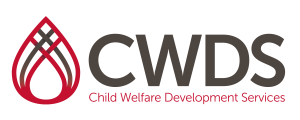CWDS Curriculum
Child Welfare is Not Algebra: Effective Critical Thinking Strategies for Child Welfare Staff
Level: Advanced Practice
Credits: 6 Hours
Intended Audience: Experienced or newly hired child welfare service personnel providing direct service with children and families.
Description of Course: This course provides a foundation for the concepts involved in critical thinking, including the importance of using critical thinking skills in child welfare. Participants begin with an organizational assessment of how critical assessment and thinking is supported within the organization at the micro- and the macro- levels. A reflective model of thinking is dissected and practiced, followed by reviewing and practicing models of problem-solving and decision-making. Throughout the course, opportunities to apply the concepts and models to actual cases are practiced and discussed, including the challenges in doing so. The course concludes with a specific transfer-of-learning plan for the participant, which involves his/her supervisor, colleagues and staff. The processes used in this workshop are approximately 30% lecture & large group discussions, 40% skills practice, 15% small group discussion & activity, 15% individual reflection & assessment.
Intended Objectives:
- Self-assess critical thinking skills and create a plan for further development
- Consider the impact of cultural identity and templates in the critical thinking process
- Understand and apply the reflective practice model as a foundation for critical thinking
- List examples of best practice critical thinking skills throughout the child welfare services programs
- Review decision-making and problem-solving processes
- Value the importance of determining how a worker reaches an action or decision, and practice using this process in a skills practice scenario
Topics Include:
- Critical thinking
- Templates/biases
- Decision-Making
- Problem-Solving
Interventions, Services & Resources



